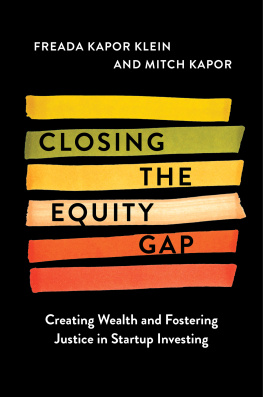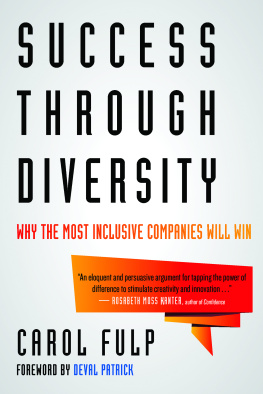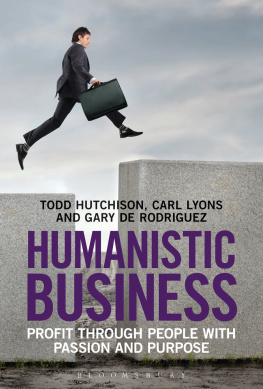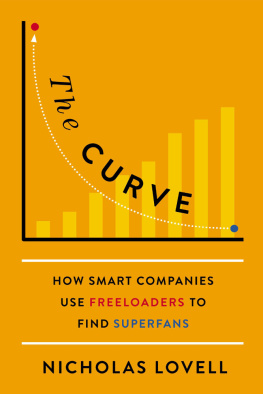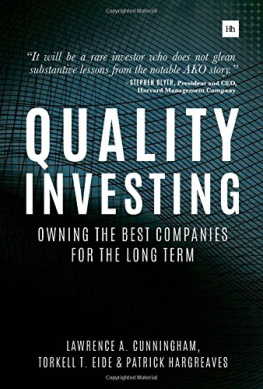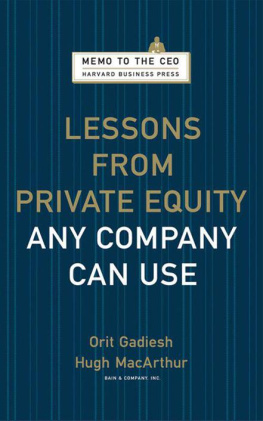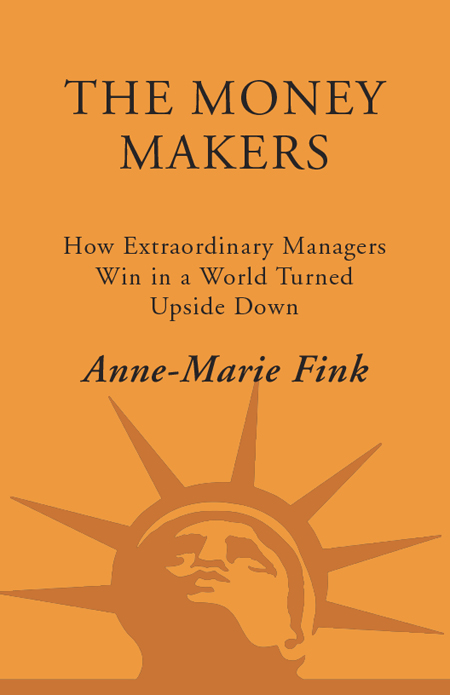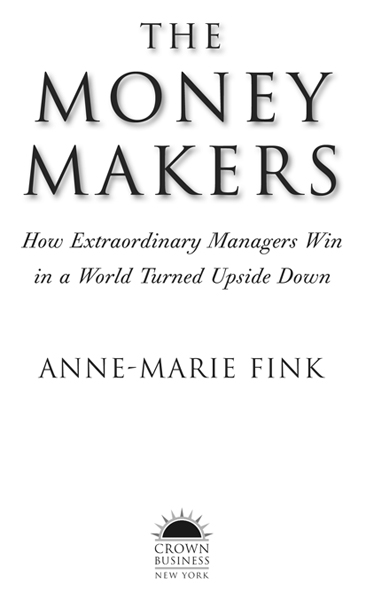I NTRODUCTION
THE CHASM AND HOW TO BRIDGE IT
T ODAY'S BUSINESS WORLD IS FILLED WITH BANKRUPTCIES and bailouts, ousted CEO S and massive layoffs, organizations spinning off expensive acquisitions made only a few years earlier, companies struggling to grow, and entire industries chasing the same strategies like lemmings to the sea. As if this weren't enough, the U.S. federal government, as I put the finishing touches on this book, is engaged in an unprecedented intervention in the workings of the marketplace to save the financial system from its self-inflicted wounds.
Alternative ideas for running a business are clearly and increasingly necessary.
As a manager, you face a gapactually, it's more like a canyon between the results expected of you and the tools you have for delivering that performance, productivity, and profitability. This gap is only getting wider as aggressive rivals from unexpected places, increasing costs, and an uncertain economy are eroding differentiation and profitability across all industries. At the same time, shareholders and other owners are demanding ever more of the executives who run companies. Yet the methods you have at your disposal, the traditional management tenets you have been taught, rarely deliver strong operating and financial results, and often exacerbate problems. For instance, the financial industry crises of 2008the bankruptcy of Lehman Brothers, the shotgun mergers for Merrill Lynch and Bear Stearns, and the government takeovers of Fannie Mae, Freddie Mac, and American International Group (AIG)were the result of executives at these firms listening to their customers, driving out all inefficiencies, and believing all growth was good. This management orthodoxy led them to overextended customers, non ex is tent checks and balances, untenable debt levels, and their days of reckoning.
For more than a decade I have confronted the conventional myths about performance, productivity, and profit as a buy-side equity analystand thus an investor in and owner of companiesfor J.P. Morgan Asset Management. Unlike consultants and academics who opine about management, I have real money at stake; literally billions of dollars rest on my assessment of companies and their managements. Since I win only when the companies whose stock I own win, I work obsessively to determine which company leaders are long-term winners-moneymakersand which aren't.
When I get together with fellow investors on bus trips to visit companies or at idea dinners,True moneymakers are that rare breed who perform consistently; they are the managers we invest with regardless of the business and economic environment. Though their companies stock prices can drop in the short term due to market factors, their companies receive a premium valuation because they are there creating value. A leader who is a moneymaker is very profitable all aroundfor shareholders as well as the company and its employees. Since I benefit from companies with strong leaders and I've repeatedly seen widely touted best practices lead managers astray I wrote this book to share what my investing colleagues and I have learnedand never before divulged about how to bridge the chasm and achieve results.
I've seen firsthand what it takes to be a moneymaker. My role as an owner affords me tremendous access to a wide swath of firms. Day in and day out I meet with CEOs, CFOs, and division heads, and peer into the guts of their businesses. I ask pointed, sometimes uncomfortable, questions and seek answers that get to the heart of the matter: Is this organization going to win or lose? Should my firm invest serious money in this company?
Moreover, I don't rely just on what senior managers are saying. I use my owner's access to a company's competitors, its suppliers, and its customers to gather more information. I've chased down employees, combed through the fine print of regulatory filings, visited far-flung operations, hired industry experts, and done what ever was necessary to understand why a company gets the resultsboth good and badthat it does.
Professional investors like mewith our exhaustive information gathering and outsider's perspectiveare often the first to grasp what's impacting operations, frequently before the executives running a company do.
When Lehman Brothers announced in September 2008 that it was only beginning to explore asset sales to shore up its overly leveraged balance sheet, investors knew the company would not make it.
When Motorola declared in October 2006 that a temporary delay in telecom customers investments had caused a minor shortfall in mobile handset sales, savvy investors knew the problem was deeper. The firm had been propping up its aging RAZR franchise with price cuts, but had not developed a successful new handset in years. Soon the mobile division was losing money, and it has struggled ever since.
When mortgage lender Countrywide Financial announced higher default rates on its home equity prime loans in summer 2007, we saw that its business model was broken. (It only avoided likely bankruptcy by selling itself to Bank of America six months later)
While Ford Motor Company's management spent most of the 2000s waiting for a stronger economy to lift profitability, we recognized that the real problem was overcapacity in the auto industry, and the only solution was to reduce production. Ford managers arrived at this conclusion only years and billions of dollars in losses later
When AOL was gearing up to offer innovative new features for its online ser vice, we knew that competitor Yahoo! had rolled out the same features months earlier
We don't just see the bad news before everyone else; sometimes we see, before the rest of the world notices, leaders launching strategies or implementing policies that will result in sustained, sometimes spectacular growth. When Mark Hurd focused on the details of Hewlett-Packard's operations, we knew the company would, after years of trying, finally compete successfully with Dell in personal computers. As oil prices rose, we realized the long-standing investment in intermodal operations of Burlington Northern Santa Fe Railroad would finally pay off, since the truck-competitive ser vice was more fuel efficient. When Genentech didn't agonize over trade secrets and openly shared its research with the academic community, we grasped that the biotech firm was creating a symbiotic relationship that would fuel its growth for years.








